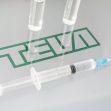After a six-month trail, a six-member jury in New York found Teva Pharmaceuticals, based in Israel, and numerous subsidiary firms, liable for New York state's drug epidemic. This landmark case deemed Teva Pharmaceuticals is responsible for New York state's severe opioid crisis, connecting the dots from manufacturing to sales to pharmacies and prescriptions.
The trial was held in Long Island, where fatal opioid overdoses in numerous counties surged to above 5,600 in 2019. Jurists, who found the defendants guilty, had been instructed to determine if the defendants helped to perpetuate the opioid crisis in New York.
Evidence in the trial included shocking videos of a Teva Pharmaceutical sales meeting where deadly opioids were joked about among employees. Videos showed at the trial included actors portraying Dr. Evil from the Austin Powers movies, talking about pushing physicians to prescribe their products.
Attorney Hunter Shkolnik from Nassau County said, “Videos of sales meetings where they laughed, and they joked about the use of drugs like fentanyl that kill people, and how they owned the market and they made the markets. This is what the public needs to see.”
The New York trial-by-jury is the result of a federal crackdown on the production and supply chain of US opioids, but it is the first case in history to use evidence from every point of the creation, sales and filled prescriptions for the Teva Pharmaceuticals opioids as evidence. It is expected this case will be mirrored by some of the thousands of other similar opioid lawsuits now underway in the US.
This was the third guilty verdict against a pharmaceutical business in an opioid trial in the US.
In December, a previous Ohio lawsuit found three pharmacy chains guilty of liability in a wide-spread opioid epidemic in that state. However, this latest New York case is the first to include numerous companies involved in the opioid manufacturing and sales chain in a lawsuit.
In response to the jury finding the accused parties guilty, State Attorney General Letitia James said in a statement that next steps will be to make Teva Pharmaceuticals and the other companies pay for lost lives, addiction, and pain.
“While no amount of money will ever compensate for the human suffering, the addiction, or the lives lost due to opioid abuse, we will immediately push to move forward with a trial to determine how much Teva and others will pay,” said James.
The lawsuit was so large there was no courtroom big enough to hold all the witnesses and defendants, so the trial was held in a Central Islip Long Island law school auditorium. There were in total over twenty-four defendants, including not only Teva Pharmaceuticals but also pharmacy chains, manufactures and distributors of opioid drugs.
The trial that began in June 2019 was initiated over a year ago and took so long due to its wide scope of defendants and numerous types of businesses involved. New York Supreme Court Justice Jerry Garguilo said it was “an ultramarathon. The Trial touched four seasons.”
As the many months passed from the filing of the lawsuit to its trial in June, numerous defendants settled instead of enduring a trial-by-jury. Allergen settled and agreed to a $200 million payout. Johnson & Johnson settled with a $230 million payout, and major drug distributors settled to pay over $1 billion, which was part of a $25 billion deal made with companies also facing US lawsuits for their actions leading to the opioid epidemic.
Across the US, over 3,000 lawsuits have been filed against numerous defendants as a result of the ongoing opioid crisis.
The settlements are earmarked for a national program for areas hit hard by the opioid epidemic, which will receive the expected $1.5 billion-plus in payments from drug manufacturers, pharmacies, distribution companies and others.
The jury in the Teva Pharmaceuticals lawsuit did not find New York State counties responsible for the opioid epidemic but did find the state must accept ten percent of the responsibility for not controlling and managing overly excessive opioid orders.
In spite of the pandemic, opioid deaths are still growing in the US. In 2021, the CDC reported a record number of deaths occurred with over 100,000 people dying due to opioids.






